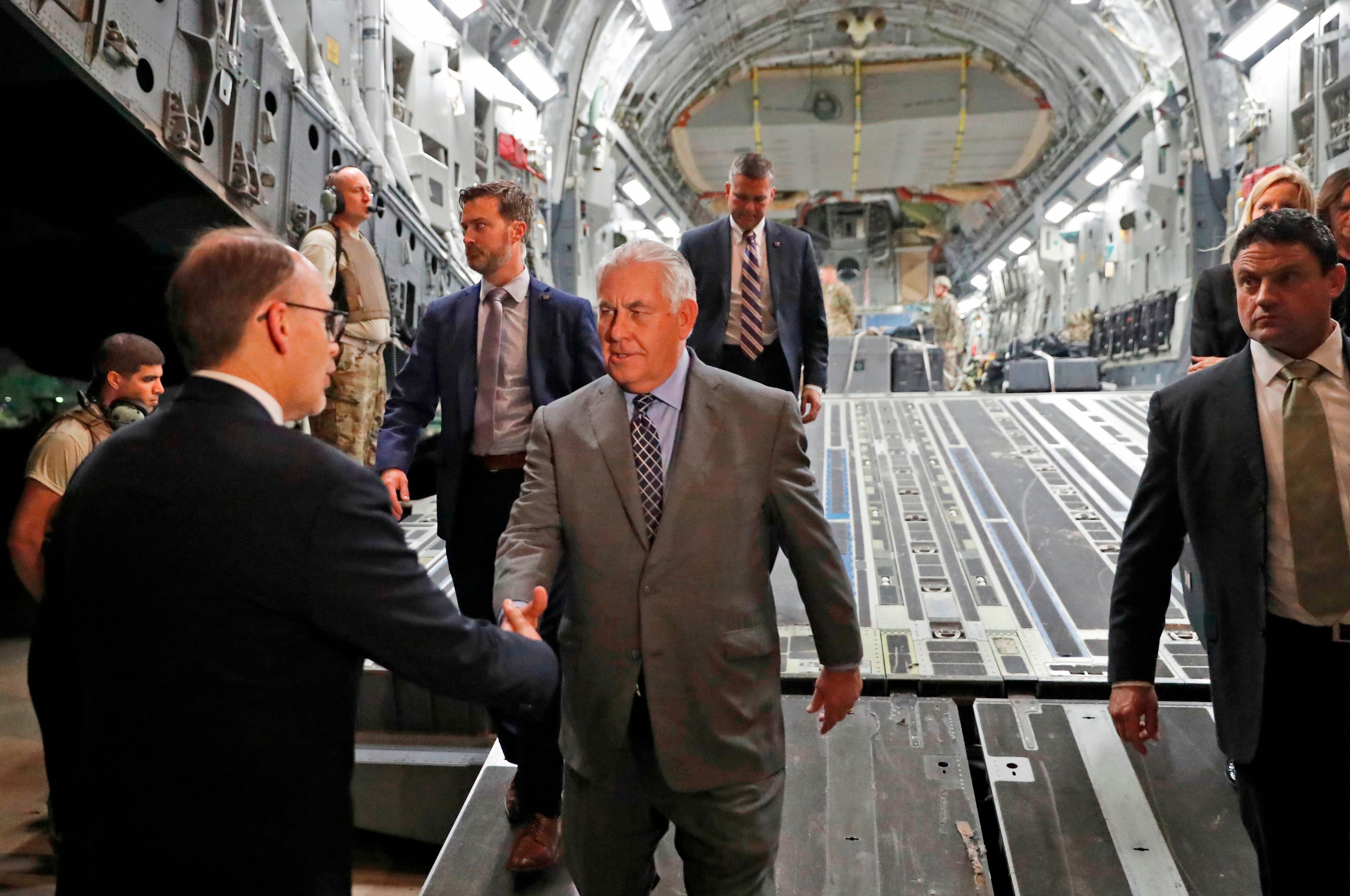WASHINGTON — U.S. President Donald Trump has the legal authority to keep U.S. forces in Iraq and Syria indefinitely, Pentagon and State Department officials said in a pair of letters released this week.
The letters detail the Trump administration’s plan for an open-ended mission for U.S. forces, beyond the fight against the Islamic State group. The letters — first reported by The New York Times — were to Virginia Democrat Sen. Tim Kaine, an advocate for a replacement for the post-9/11 war authorizations for the use of military force.
The letters come amid various efforts from congressional Republicans and Democrats to have Congress approve a new authorization, or AUMF. Kaine and other critics argue the White House’s use of authorizations from a decade and half ago is a legal stretch. He called on Trump to seek a new authorization.
“As I have long feared, we are moving from administrations exploiting the blurry authority between the president’s and Congress’s shared war powers to the alarming belief that Congress doesn’t need to be involved at all,” Kaine said in a statement, adding that Trump is “acting like a king by unilaterally starting a war.”
In the letters to Kaine, not only is the end date of U.S. operations in Iraq and Syria vague — so is the number of U.S. troops working to defeat the remnants of ISIS. The Defense Department publicly says that number is 2,000, but has acknowledged that number omits troops on “sensitive missions.”
“We anticipate these numbers will decrease as the nature of our operations change in Iraq and Syria, but we do not have a timeline-based approach to our presence in either Iraq or Syria,” Deputy Under Secretary of Defense for Policy David Trachtenberg wrote in the department’s letter to Kaine.
Administration officials emphasized the continued potential threat from ISIS as justification for U.S. troops to remain indefinitely deployed. In its letter, DoD included a list of complex precursors to the department considering ISIS defeated: stabilization, political reconciliation and local security forces becoming self-sufficient.
“Just as when we previously removed U.S. forces prematurely, the [Islamic State] group will look to exploit any abatement in pressure to regenerate capabilities and reestablish local control of territory,” Trachtenberg wrote.
For now, the DoD is not targeting other militias or organizations, including Shia militia groups or Iranian proxies, the officials said.
“The United States does not seek to fight the government of Syria or Iran or Iranian-supported groups in Iraq or Syria,” wrote Mary Waters, the assistant secretary of state for legislative affairs. “However, the United States will not hesitate to use necessary and proportionate force to defend U.S., coalition, or partner forces engaged in operations to defeat ISIS and degrade Al Qaeda.”
RELATED

The 2001 war authorization, or AUMF, lets U.S. troops use force to defend themselves and defend counter-ISIS partner forces, the officials said. It also covers some “limited and lawful” U.S. strikes against Syrian government forces — though they are not considered ISIS partners under the 2001 AUMF, Trachtenberg wrote.
As a matter of international law, the U.S. is using force in Iraq with the consent of the Iraqi government, the officials said. In Syria, the U.S. is using force against ISIS and al-Qaida and is supporting Syrian partner forces “in the collective self-defense of lraq (and other states) and in U.S. national self-defense.”
To Kaine, the real stretch is the administration claim that the 2001 AUMF allows the U.S. military “to strike pro-Assad forces in areas devoid of ISIS to protect our Syrian partners who seek [Syrian President Bashar] Assad’s overthrow.”
The administration, Kaine said, has not shared its full legal justification for striking a Syrian air base in April. With Trump invoking a constitutional authority in the attack to justify “unilateral military action absent an imminent threat to the United States or its personnel, it is clear the Trump administration is crossing a Constitutional line,” he said.
Joe Gould was the senior Pentagon reporter for Defense News, covering the intersection of national security policy, politics and the defense industry. He had previously served as Congress reporter.








